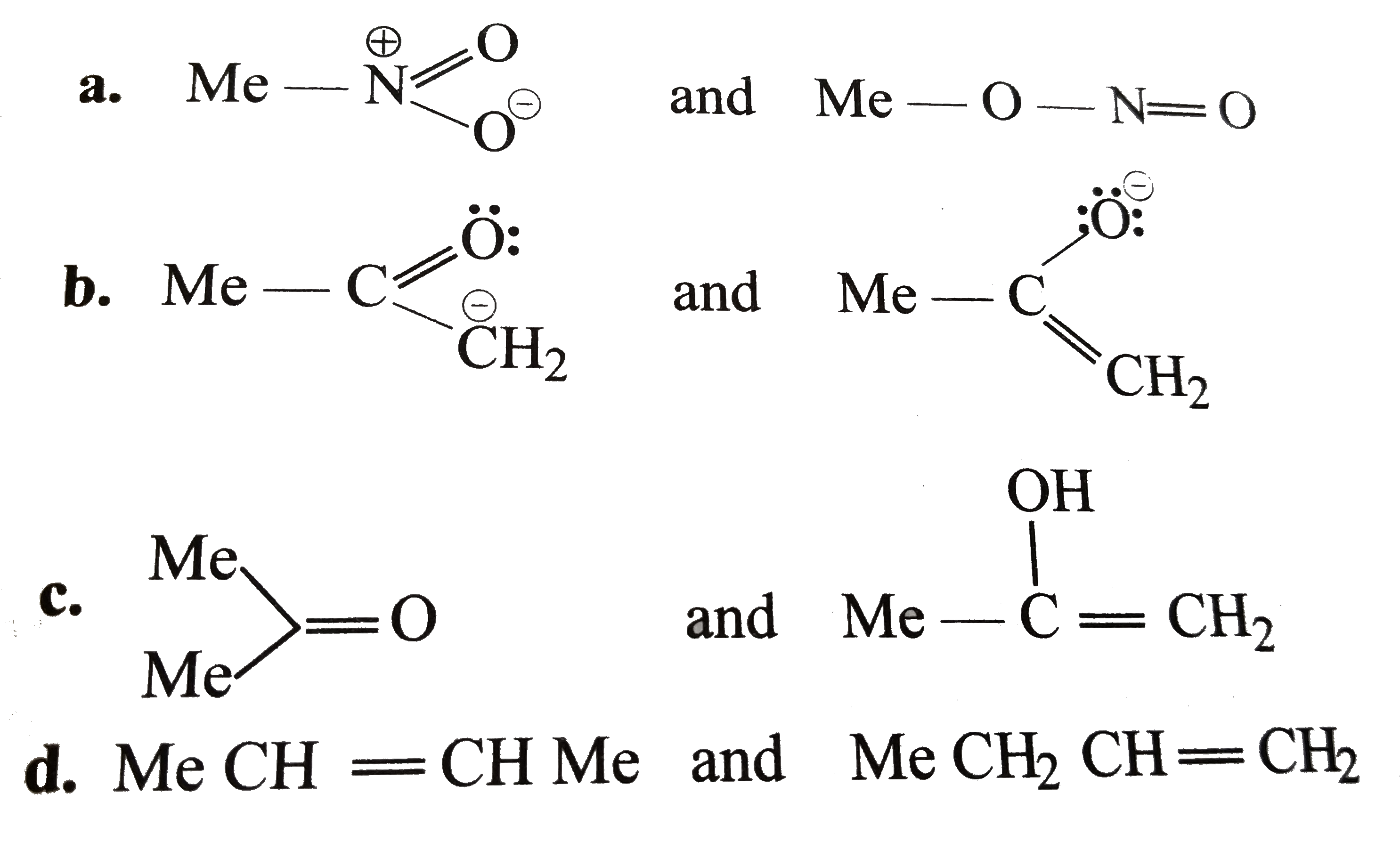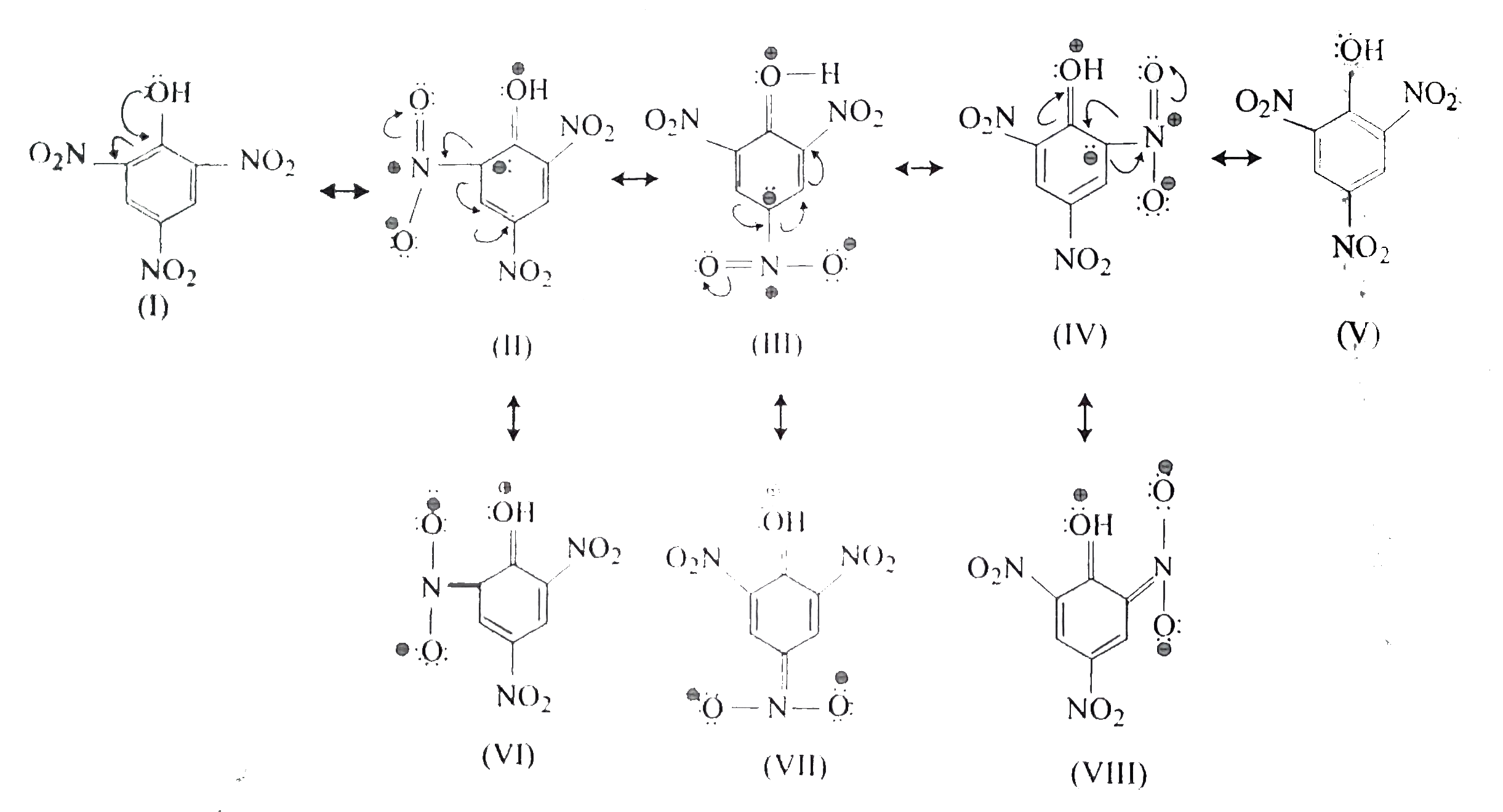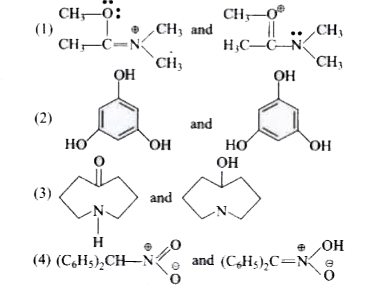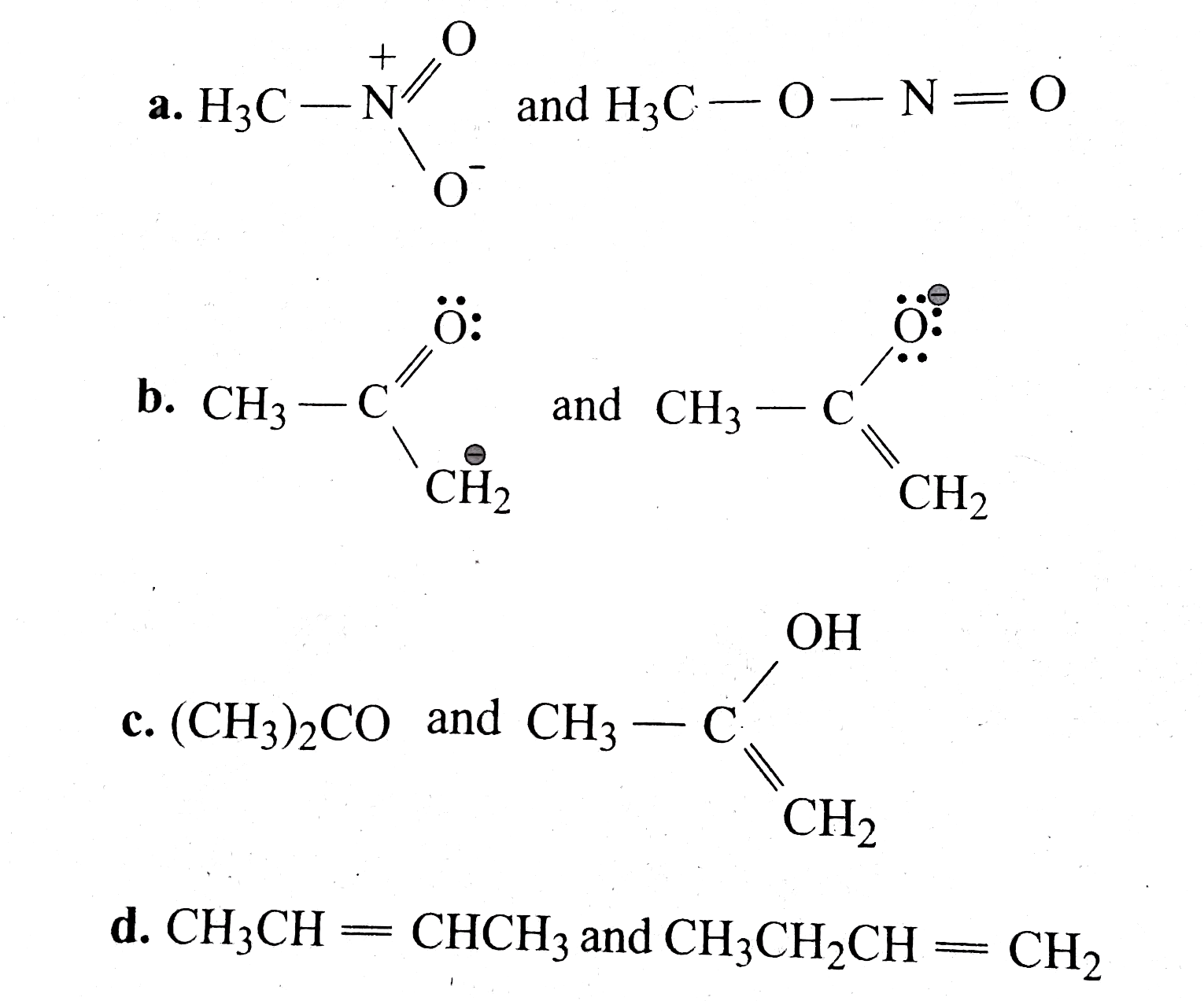Which of the following pairs do not constitute resonanting structures ?

Video Solution
Text Solution
(a) In resonance, the position of atoms or nuclei remains fixed, so pairs in (ii) constitude resonance. In othe pairs, the position of atoms are changing , therefore, (i),(iii), and (iv) pairs do not constitude resonance structures.
(i) They constitude functional isomerism (nitro to nitrite)
(ii) They constitude resonance structures.
(iii) They constitude tautomerism (keto and enol) and also show functional isomerism.
(iv) They constitude positional isomerism (position of double bond has changed).
(b) (i) , since is more than .
(ii) , since is more than
(iii) , since is more than .
( c) Inductive effect is least in bond because the magnitude of inductive effect diminishes as the number of intervening bond increases.
(d) (i) 
(ii) Picric acid is trinitrophenol.
 .
.
|
Updated on:21/07/2023
Related Playlists
- BOOK - CENGAGE CHEMISTRY ENGLISHCHAPTER - GENERAL ORGANIC CHEMISTRYEXERCISE - Solved Example18videos
GENERAL ORGANIC CHEMISTRY
- BOOK - CENGAGE CHEMISTRY ENGLISHCHAPTER - GENERAL ORGANIC CHEMISTRYEXERCISE - Subjective11videos
GENERAL ORGANIC CHEMISTRY
- BOOK - CENGAGE CHEMISTRY ENGLISHCHAPTER - CLASSIFICATION AND NOMENCLATURE OF ORGANIC COMPOUNDSEXERCISE - Analytical and Descriptive Type3videos
CLASSIFICATION AND NOMENCLATURE OF ORGANIC COMPOUNDS
- BOOK - CENGAGE CHEMISTRY ENGLISHCHAPTER - HYDROGEN, WATER AND HYDROGEN PEROXIDEEXERCISE - Subjective Archive (Subjective)3videos
HYDROGEN, WATER AND HYDROGEN PEROXIDE
Knowledge Check
- Question 1 - Select One
Which of the following pairs does not represent resonance structures?
ACH3C≡⊕N−өOandCH3−⊕C=N−өOB CCH2=⊕N=өNandөCH2−⊕N≡ND
CCH2=⊕N=өNandөCH2−⊕N≡ND
- Question 1 - Select One
Which of the following pairs of structure are resonance structure?
 A1 and 4B2 and 3C1 and 2Dall of these
A1 and 4B2 and 3C1 and 2Dall of these - Question 1 - Select One
Which of the following does not represent resonating structure of ?
 A
A B
B C
C D
D
- Question 1 - Select One
Which of the following molecules does not show any resonating structures?
ANH3BCO2−3CO3DSO3 - Question 1 - Select One
Which of the following conditions does not apply to resonating structures?
AThe contributing structures should have the same or nearly same energies.BThe contributing structures should be represented such that unlike charges reside on the atoms which are the farthest.CThe electropositive atom should have positive charge and the electronegative atom the negative charge.DThe contributing structures must have the same number of unpaired electrons.
Similar Questions
Which of the following pairs constitute isotones ?
View SolutionWhich of the following pairs constitute isotones ?
View SolutionWhich of the following pairs of structures do not constitude resonance structures ?
 View Solution
View SolutionWhich of the following pairs represents resonating structures ?
View SolutionWhich of the following has the miximum number of resonating structure ?
View Solution

